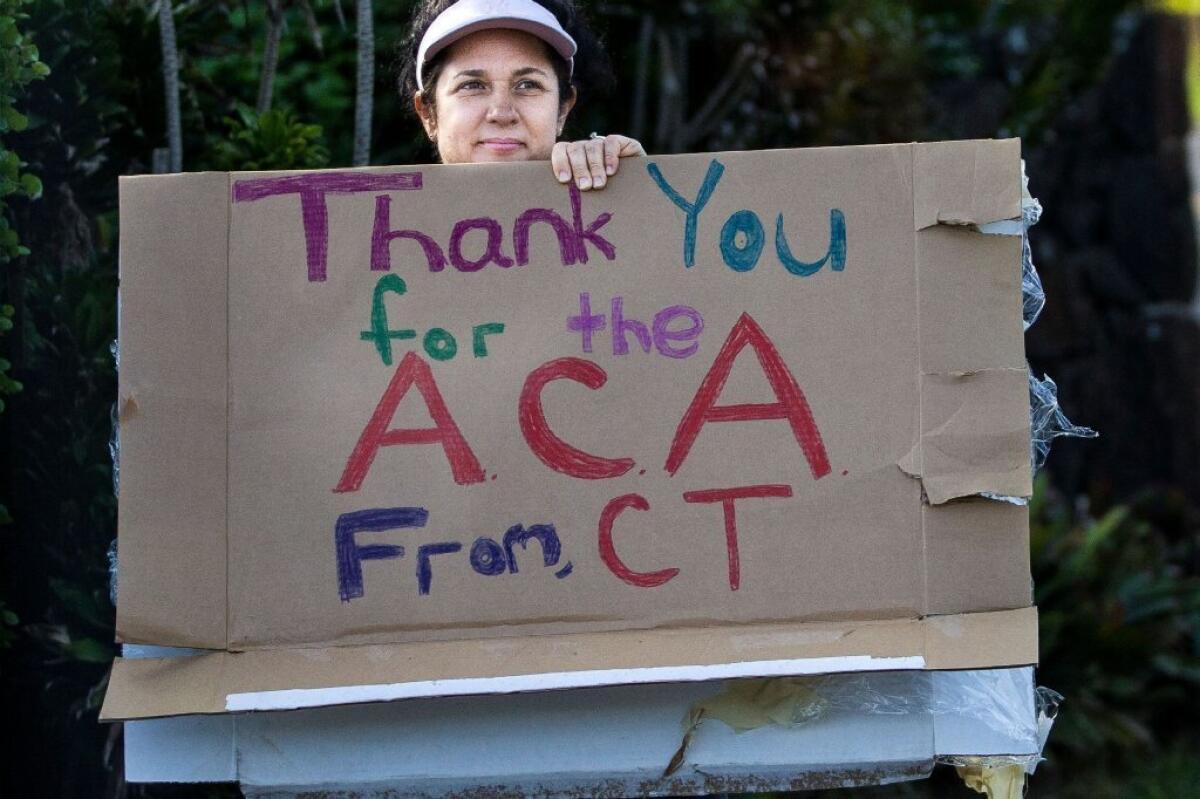Implementing Obamacare in a red state: A report from the front

If youâre handing out New Yearâs best wishes for the âlosersâ in the rollout of the Affordable Care Act, save some heart for the people tasked with implementing the new law in red states -- the dozens of states where legislative obstruction has left more than 5 million Americans without access to health insurance.
You might even shed a tear for the Republican politicians who blocked Obamacare on grounds that it would mean an unwarranted intrusion of the federal government into state affairs -- yet in doing so have opened the way to greater federal intervention in their healthcare systems, through the substitution of the federal healthcare exchange for homegrown versions.
These observations come from Jonathan Oberlander, a health policy expert at the University of North Carolina. Oberlanderâs position gives him a seat at ground zero of the GOP resistance to the Affordable Care Act, which he has described in a new article in the New England Journal of Medicine.
As a result of the conflict between state and federal implementation of the ACA reforms, âtwo Americas have emerged in health care reform,â Oberlander and his coauthor, Krista Perreira, wrote. âStates like California, which have embraced Obamacare ... and are intent on boosting enrollment and ensuring its success; and states like North Carolina, whose political leaders oppose Obamacare, resist its implementation, reject Medicaid expansion, and hope that the program collapses.â
North Carolina is not the worst obstructor. Florida and other states have actively interfered with efforts by social service organizations to âexplain a complex, confusing, and controversial law and to reach populations that are newly eligible for insurance,â the article said.
The state-level opposition was abetted by the 2012 Supreme Court decision that made the ACAâs expansion of Medicaid optional. So far, 25 states have refused to expand Medicaid to cover the uninsured, and 27 have refused to create their own insurance exchanges, leaving that task to the federal government. (Seven more will create joint federal-state exchanges.)
As Oberlander and Perreira point out, this level of opposition to and obstruction of a federal law, even a controversial one, is unprecedented.
The victims are the poor and uninsured. In North Carolina, which rejected Medicaid expansion, that category encompasses 319,000 residents with incomes below the federal poverty line. In some parts of the state 25% of residents will remain uninsured.
The stateâs Medicaid program is not particularly generous to begin with -- parents are eligible for coverage only if their income is less than 46% of the poverty line, and childless adults are almost all ineligible at any income level.
The orphaning of the stateâs uninsured residents wasnât inevitable. In 2010, under Democratic Gov. Bev Perdue, North Carolina began work on establishing its own insurance exchange. The effort stopped when the 2010 elections produced a GOP majority in both houses of the Legislature. After a Republican became governor in 2012 -- giving the GOP unified control of the state government for the first time in 142 years -- the state returned a $20-million federal grant to implement the ACA.
âThere is no state-organized outreach and enrollment effort, no state campaign to raise awareness about new coverage options, and no state-led drive to cover hard-to-reach populations such as immigrants,â reported Oberlander and Perreira.
The nonprofit group Enroll America has made North Carolina one of its 11 top target states for ACA outreach, but a yawning gulf will remain, for such groups âlack the resources, authority, coordinating ability, and presence that would have accompanied a state-organized campaign to implement Obamacare,â Oberlander and Perreira reported.
As Oberlander and two co-authors reported in a second article, Republican politicians who decided not to implement the ACA from the start were making a dangerous bet: They assumed the law would be overturned by the Supreme Court, and therefore that it was safe to treat the measure âas if it did not exist.â
Some hedged their bet. Applications for more than $300 million in federal grants to set up exchanges came from among the 27 states suing in federal court to block the ACA. But yielding to right-wing demands, many Republican leaders later returned the money.
Some resisted the pressure. âI know Iâve signed the lawsuit,â Iowaâs Republican governor, Terry Branstad, told his insurance commissioner, âbut can you get me the money Kansas just gave back?â (The insurance commissioner, Susan Voss, repeated the conversation at a public forum in 2012.) The answer was no, but Iowa has become one of the states creating hybrid state-federal âpartnershipâ exchanges.
What the record shows is that opposition to implementing the ACA is worse than ideological -- itâs political on a crassly partisan level. Thatâs the only explanation of how the conservative Heritage Foundationâs health policy expert, Edmund Haislmaier, could go from praising Massachusettsâ original state exchange, the Connector, as an achievement providing âconsumer choice of plans and true coverage portabilityâ in 2006, when it was implemented by Mitt Romney, to calling in 2011 for âhouse by house, floor by floor, room by room combatâ against the ACA -- which as Oberlander and his colleagues reported, created exchanges âstrikingly similar to the organized purchasing pools that many Republicans previously supported.â
This sort of leadership would be judged cynical enough if nothing important were at stake. But peopleâs lives and health hang in the balance. Shouldnât the governors and legislatures of these refusenik states make a New Yearâs resolution to take care of them at last?
More to Read
Sign up for Essential California
The most important California stories and recommendations in your inbox every morning.
You may occasionally receive promotional content from the Los Angeles Times.











